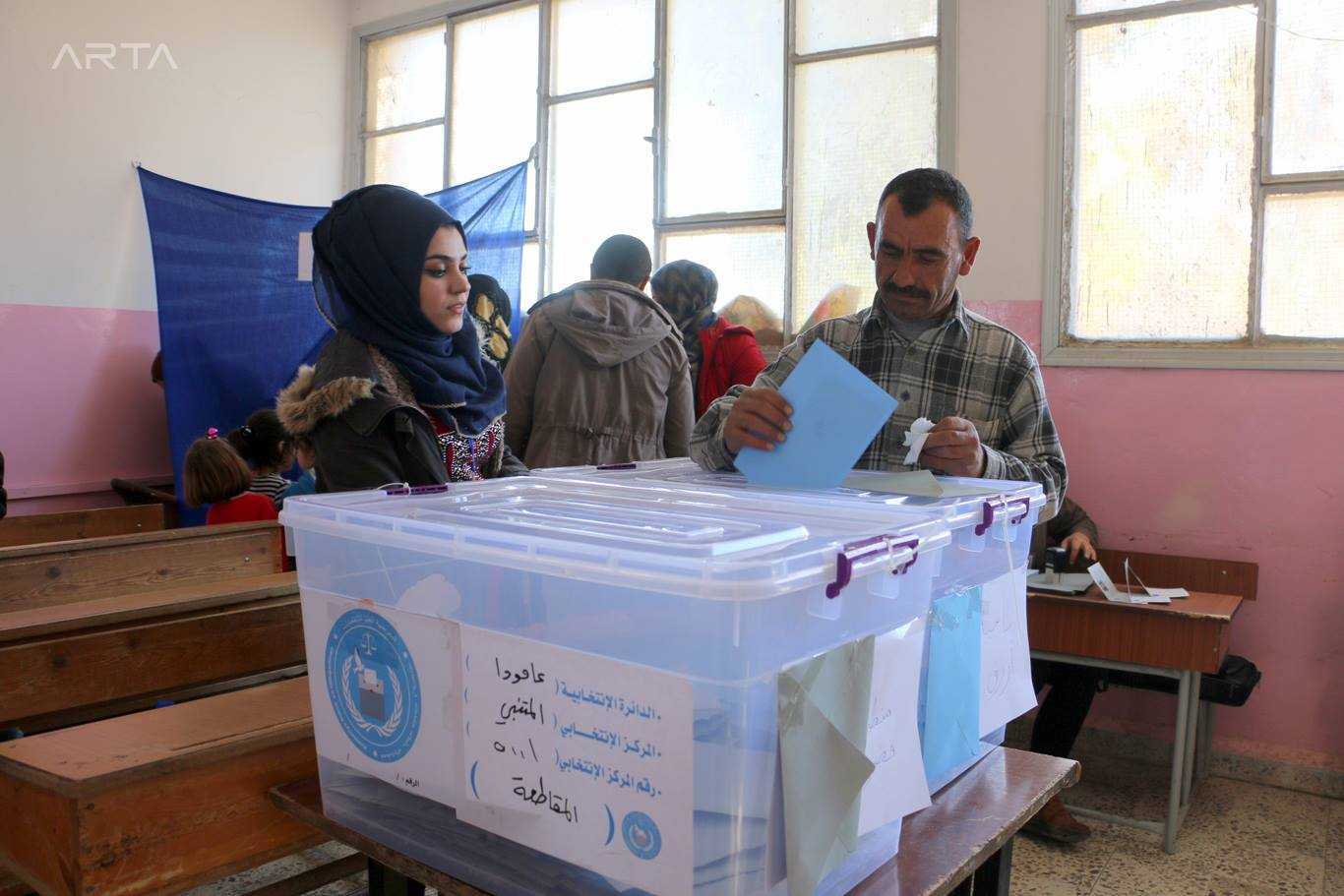Elections in Kurdish-held northern Syria postponed with no date set
The third and final round of elections to choose political […]
8 January 2018
The third and final round of elections to choose political leaders in Syria’s majority-Kurdish north were slated for later this month. But now, one official says, the race is postponed for “administrative” reasons, with no new date scheduled.
The elections, which were to include three separate rounds over the course of five months, represent a move by Kurdish authorities to consolidate control over northern Syria after the dominant Kurdish Democratic Union Party (PYD) and allies voted to form a federal system in 2016.
Kurdish-controlled territories in Syria’s north, also known as Rojava, are divided into three cantons governed by de facto autonomous Self-Administration authorities. In a first round of elections held in September, voters across Rojava elected local neighborhood leaders.
A second round of elections for town, city and regional councils was slated for November but postponed by one month.

The third round was set to elect the region’s highest body, the governing People’s Democratic Council, says Fouzah Youssef, co-president of the Self-Administration’s Executive Committee.
But Self-Administration authorities released an online statement on Thursday postponing the third round of elections, originally slated for January 19, citing “restricted” preparation time. It is unclear when the elections will now occur.
The final round of elections “was to be the culmination of forming the federal administrative system in northern Syria,” Youssef tells Syria Direct’s Mohammad Abdulssattar Ibrahim.
Authorities lack the manpower to run a major territory-wide election while still setting up dozens of newly elected local councils from December’s race, Youssef says, denying any political reasons behind the delay.
“This is our first experience with the election process, so there are many issues that are cropping up,” she says.
Q: Self-Administration officials postponed the second round of elections in November—what’s behind the decision to postpone yet another round? And why postpone it so close to the scheduled election day? Are there any political reasons for this, such as pressure from outside parties?
It was impossible for political leaders to carry out preparations in the approved timeframe.
In addition, we recently started organizing the local councils that were elected [in the second round of elections in November]. To avoid an administrative vacuum, we need a bit more time to carry out the coming elections.
This our first experience with this [high-level election process], so there are many issues that are cropping up. That calls for some changes in the work plans.
So yes, the reasons for postponement are organizational and administrative, not political.
Q: Seeing as these elections are a “first” for the Self-Administration, how did political leaders in Rojava handle them? Can you talk more about the “organizational and administrative” issues that came up?
We already had the Self-Administration [in place since 2013], but it was formed through an agreement between the various political groups. In contrast, now we are having our first elections for the local councils, starting with the villages and ending with the cantons themselves.
As such, there is a need [for these newly elected councils] to organize their affairs and form their executive committees so they can carry out their duties.
This needs a lot of preparation, of course, seeing as it’s the first time the constituents are administering themselves.
We are still at the beginning of the road. But we’re doing everything we can to prevent an administrative vacuum and set up a complete administrative system following the third round of elections.
Q: What’s the view from Rojava concerning how the Syrian government and foreign actors might react to the elections?
Of course [outside parties] are going to oppose the steps we have taken toward [a federal administration in Rojava].
As for the [Syrian] regime, it rejects any real solution, and it wants to return Syria to what it was before 2011.
Concerning Turkey, it is very clear relations with them will be negative and hostile, as they have been. That is because Turkey is against any democratic solution in Syria, and it has no interest in ending the war. It opposes any solution that serves the Kurdish people.
As far as Russia and the US’s positions, it’s my opinion that both countries are convinced the central state is no longer a solution, and that there is a necessity for deep-rooted solutions. The steps that we’re taking serve stability in Syria and present a solution, so they will not oppose them. That’s because the regime and Syrian National Council [a Syrian opposition coalition based in Turkey] are nothing more than obstructionists.
The [Rojava] political administration that has arisen in northern Syria is the only one providing any alternative, and something that can grant all the demands of the Syrian people within the framework of a democratic, pluralist system.







